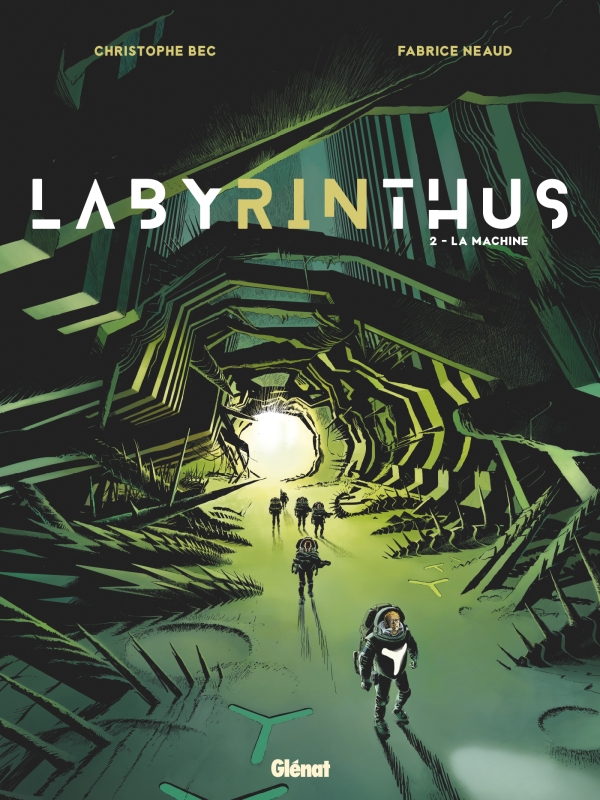What if aliens came to implant a virus on Earth? A crazy conspiracy theory about covid? No, this is the pitch of Labyrinthus Volume 2 proposed by Glénat editions.
Pandemic and extraterrestrial
In the first volume, written before covid, the reader felt the horror of a global pandemic. In 2057, ash from strange typhoons disperses and then triggers deadly respiratory diseases. Scientists and politicians prove that "Ash" is an alien virus that has come to exterminate humanity! But, there is a solution on Phobos, satellite of Mars, where the pandemic originated. Indeed, this moon, in artificial reality, was designed by extraterrestrials much more advanced than the Earth. 
A deadly labyrinth
In this second volume, the Laputa Mission, composed of Chinese and Russian scientists and soldiers has just arrived on the moon Phobos. It explores the remains of an ancient civilization. As in the Inhuman comic reviewed in this link, the story proposes the discovery of a new uncertain world. Indeed, the interior of Phobos changes even according to the actions and thoughts of the astronauts. Fear sets in as the team sinks into the bowels of the artifact because, like a living being sending antibodies, the place reacts to aggressions on its structure with deadly traps but not only. Captain Wilson has visions of his ex-wife asking him for an explanation for the failure of their marriage. With each new advance, this machine kills those who feel guilty like a Chinese soldier cut in half because he killed innocent Uighurs. Every astronaut feels at the mercy of a power beyond him. Alien fan, you will be delighted by this oppressive beginning. Accustomed to more autobiographical stories with his Journal, Fabrice Neaud's drawing, by its very present inking and its precise line, offers a unique vision of Phobos. The base is sometimes close to a carnivorous plant and elsewhere as smooth as a machine.
Fear of the virus
Through Christophe Bec's screenplay, Labyrinthus appears at first very pessimistic. A bacteriological war is decimating the Earth and three-quarters of humanity is already dead. Some humans believe that these aliens came to purge the Earth undermined by overpopulation and pollution. In the first pages showing the interior of a space shuttle, the reader discovers a competition between an American team and another Sino-Russian. The second team found the Americans who had arrived shortly before, and despite the initial hostility they collaborated. While governments are unable to find a solution or unite, scientists on Phobos are trying to rationalize the irrational. However, the pitfalls are above all individual tests that everyone will have to overcome in order for the team to move forward.  The narrative becomes more positive in the last part. Indeed, it is the excluded who understand extraterrestrials best. The future of humanity will depend on the autistic Jacoby. His gift and reasoning outside the norms allow him to understand the anomalous intelligence of an alien machine. But how can we make it clear to human beings left on Earth? Labyrinthus offers a dark future to humanity but where light is not absent at the end. This two-volume series is in the current health context even more worrying. It also demonstrates that this ordeal can move humanity forward. Once the book is closed, however, the reader can only hope that the year 2021 will include fewer tests than the future proposed by Bec and Neaud.
The narrative becomes more positive in the last part. Indeed, it is the excluded who understand extraterrestrials best. The future of humanity will depend on the autistic Jacoby. His gift and reasoning outside the norms allow him to understand the anomalous intelligence of an alien machine. But how can we make it clear to human beings left on Earth? Labyrinthus offers a dark future to humanity but where light is not absent at the end. This two-volume series is in the current health context even more worrying. It also demonstrates that this ordeal can move humanity forward. Once the book is closed, however, the reader can only hope that the year 2021 will include fewer tests than the future proposed by Bec and Neaud.





































